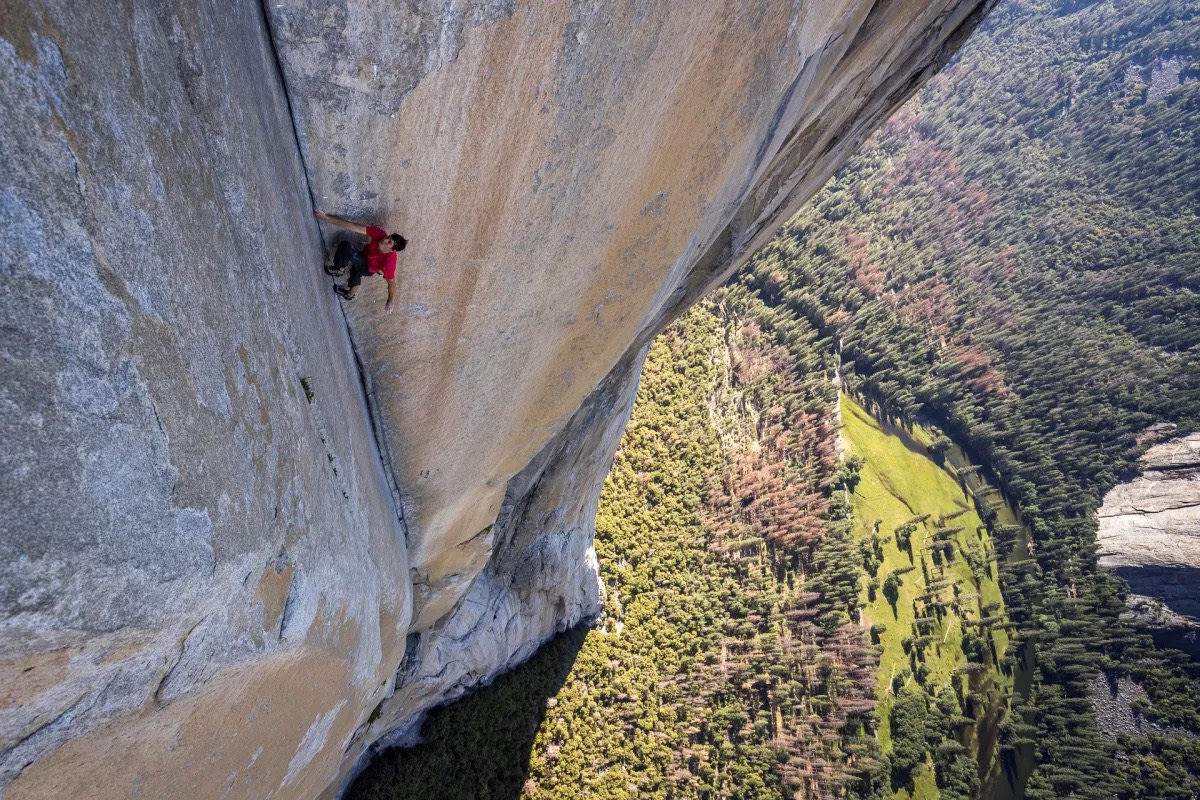All his life, famed "Free Solo" climber Alex Honnold has kept a journal, or "ticklist," tracking rocks and mountains he's climbed — with or without ropes.
And over the past few years, he's started keeping another kind of journal — what he calls a "sustainability ticklist" — to keep track of his lifestyle, diet, and other aspects of his goal to live simply.
"The idea with the sustainability ticklist was to start a list of all the things I could do to lower my impact on the world, so be that diet, banking, or lifestyle choices, travel, other ways I could minimize my impact," he told The Cool Down in a wide-ranging interview.
So where did he start on his journey?
"With environmental issues, I think it makes sense to start with the thing that's easy, and work from there. Taking any step at all is better than doing nothing."
🍽️ Step 1: The clean plate club
For Honnold, one of those easy steps with a massive impact was reducing his food waste by composting — which has become part of his morning routine with his two-year-old daughter, June.
"I think of composting as one of those bare minimum sorts of things where if you bring things into your home, you should take care of them there as much as possible instead of shipping them somewhere else," he explained. "Composting I think of as one of those win-win solutions."
"The typical morning routine is, I get June out of bed and then bring her out, and then we bring the compost out, we unload the dishwasher, take out the trash, basically get the house ready."
Honnold, who lives in Las Vegas, said it's hard for him to compost outside because it's so dry, so he bought a composting machine that sits on a step just outside his kitchen.
"This is a Vitamix FoodCycler, basically just a composter; it dries it up, grinds it up, and turns it into soil, basically," he said.
Americans waste about 40% of our food — and as Honnold explained, much of that goes to landfills where it turns into methane gas, which is one of the most harmful planet-warming gases.
"Most landfills basically compress food waste so it can't digest the way it normally would; it won't break down as food should," he said. "It will just decompose anaerobically, which emits methane, which is worse for the environment. If you can compost on your own property, it's basically returning to the cycle of life right there."
📈 Step 2: Progress > perfection
While Honnold's journey started with composting, eating a mostly vegan diet, and overall living a simpler life, he's now decided to donate a third of his own income to funding climate solutions through the Honnold Foundation, particularly bringing renewable energy to lower-income communities.
But, he says, sustainability is all about progress, not perfection, and just living more simply in the world.
"My new general take on sustainability is that so much of sustainability is just being content … being comfortable in your own life and just living. Being relaxed, hanging out with your friends, reading, chilling, just existing without feeling like you need to do more, or buy more, or go somewhere else," he explained. "Just being comfortable in your own life."
That's a big box to check on his "sustainability ticklist," but every small action counts — even if that's just eating old food from the fridge.
"If it smells weird," Honnold said with a smile, "just eat it anyway."
Join our free newsletter for cool news and cool tips that make it easy to help yourself while helping the planet.









